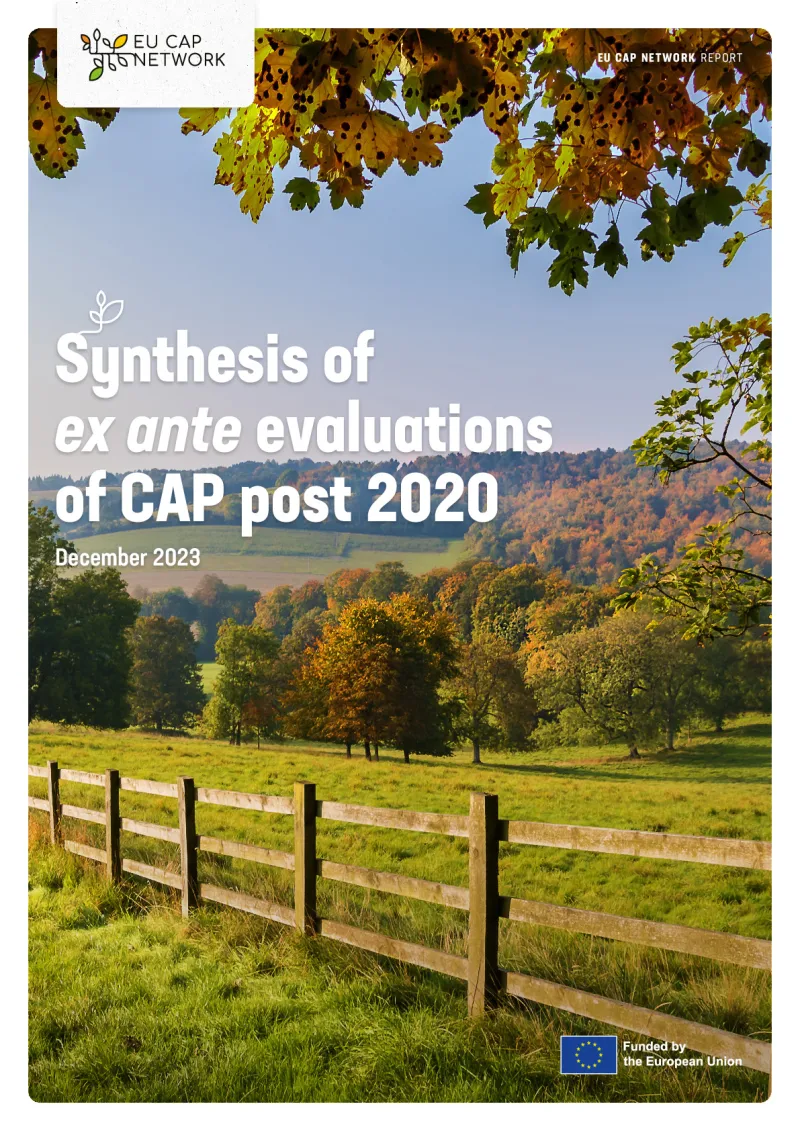Ex ante evaluations can help shape CAP Strategic Plans
The synthesis of ex ante evaluations for the CAP in the 2023-2027 programming period offers critical insights and recommendations to enhance Member States' interventions.

With the transformation of CAP governance and the introduction of CAP Strategic Plans (CSPs), the 2023-2027 programming period marks a departure from traditional compliance-focused strategies. The crucial role of ex ante evaluations in refining CSP design and guiding implementation is paving the way for a performance-driven approach.
The report of the 'Synthesis of the ex ante evaluations of CAP post 2020' has just been published.
The ex ante evaluations, mandated by Article 139 of the CAP Strategic Plan regulation, play a pivotal role in improving the quality of the design of the CSPs and establishing the starting point of the evaluation during the 2023-2027 implementation period.
In this programming period, the ex ante evaluations encompass a broad scope, assessing all interventions funded by both the European Agricultural Guarantee Fund (EAGF) and the European Agricultural Fund for Rural Development (EAFRD). These evaluations helped to ensure the effective alignment of CAP interventions with national, regional and local needs, and EU level objectives.
The synthesis of ex ante evaluations reveals a strong emphasis by Member States on context and SWOT analyses, offering comprehensive data. However, ex ante evaluators stress the need for a more integrated and narrative-driven analysis on all economic, social and environmental aspects. The report emphasised the importance of avoiding a siloed approach and promoting an integrated perspective throughout the CSPs.
The needs assessment and prioritisation processes, built on robust context and SWOT analyses, demonstrated logical input-output relationships. Nevertheless, ex ante evaluators highlighted the need for a clear justification of regional disparities in interventions. The ex ante evaluators pointed to the alignment of interventions with identified needs, validating the relevance of CSPs.
Recommendations for clearer intervention logic and transparent eligibility conditions have been emphasised, along with the integration of lessons from previous programming periods.
The ex ante evaluation process has been conducted in parallel with the CSP development and has often followed a multi-phase approach. However, assessments were primarily based on early drafts of the CSPs, indicating the need for evaluating the final approved CSP for a comprehensive analysis. The ex ante evaluation process would benefit from enhanced analysis on potential impact, causal links between needs, interventions and indicators, and identification of risks affecting target achievement.
The ex ante report demonstrated that CSPs expressed a higher environmental ambition compared to the previous period through a range of actions and commitments aimed at addressing environmental challenges more effectively and efficiently. However, ex ante evaluators raised concerns regarding the guidelines and methodology to be used to substantiate a credible claim of a ‘higher’ environmental and climate contribution.
To enhance the ex ante evaluation process and bolster CSP effectiveness, the European Evaluation Helpdesk for the CAP formulated several recommendations addressed to ex ante evaluators, Managing Authorities and the European Commission. Recommendations address timely evaluations, evaluating final approved CSPs, leveraging lessons from past periods, fostering feedback mechanisms, engaging stakeholders strategically, promoting visual tools for effective communication, broadening evaluation scope, standardising reporting structure and establishing better links with impact indicators. Member States and Managing Authorities can utilise these findings to fine-tune their strategies in the next programming period.
